Middle East
Israel wildfires flare near Jerusalem for a second day | Wildlife News
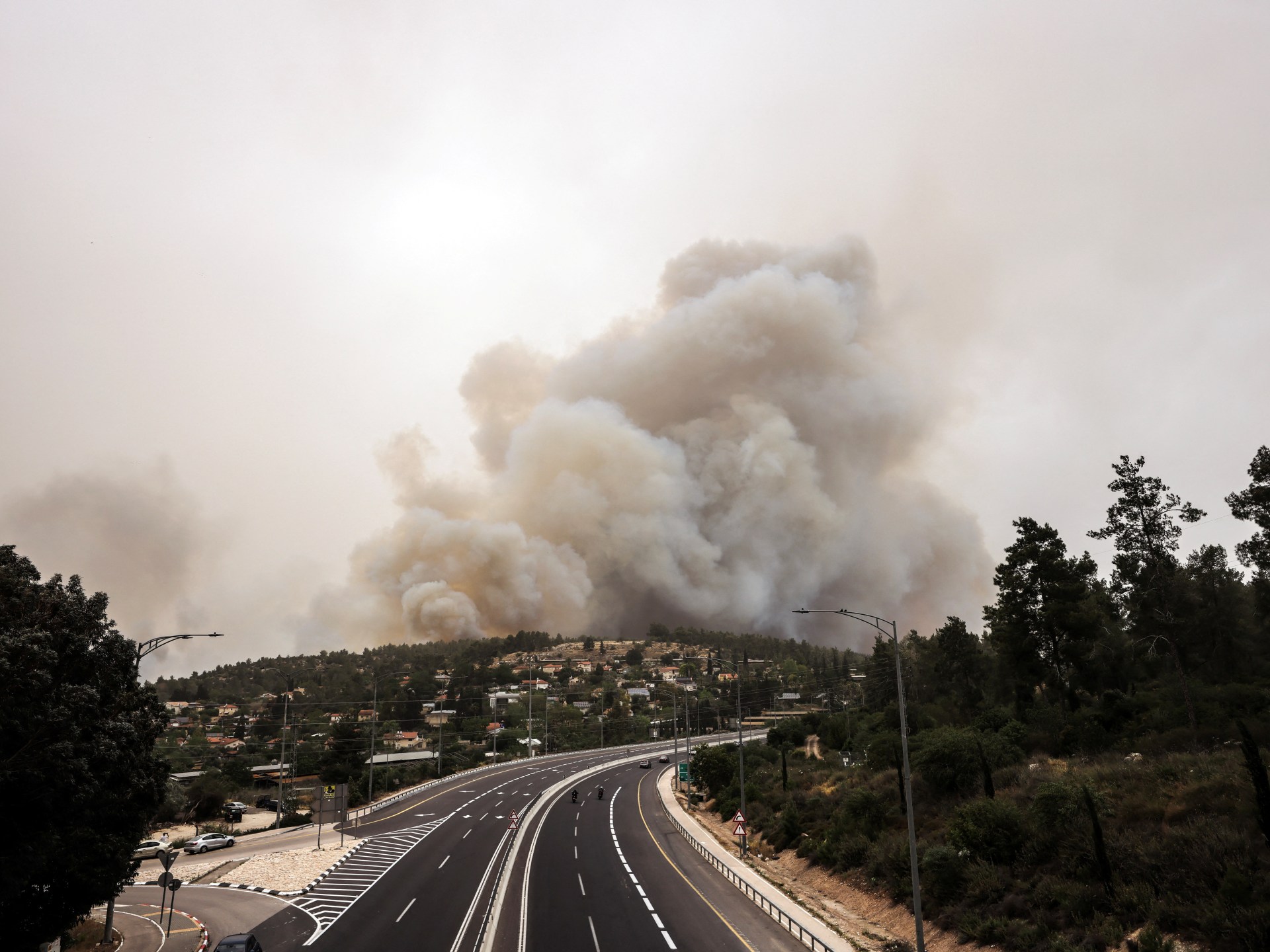
Israel’s firefighting service said 163 ground crews and 12 aircraft were working to contain the flames.
Israeli firefighting teams have been tackling wildfires near Jerusalem for a second day, with police reporting the reopening of several major roads that had been closed.
The fires broke out on Wednesday along the main Jerusalem–Tel Aviv highway, prompting police to shut the roads and evacuate thousands of residents from nearby areas.
Israel’s firefighting service said 163 ground crews and 12 aircraft were working to contain the flames.
Rescue agency Magen David Adom said it treated 23 people on Wednesday, mostly for smoke inhalation and burns.
Seventeen firefighters have also been injured, according to Israel’s public broadcaster Kan.
Crews worked through the night, allowing the reopening of main roads, including the Jerusalem–Tel Aviv route, police said.
“All routes have been reopened to traffic,” according to a police statement.
National emergency
Fanned by high temperatures and strong winds, the fires spread rapidly through wooded areas, prompting evacuations from at least five communities, police said.
European countries Italy and Cyprus have dispatched eight firefighting planes to Israel to support its emergency efforts, according to The Times of Israel.
The assistance comes as fires continue to burn in 11 hotspots near Jerusalem, with seven towns still under evacuation, the publication said, quoting Israel’s Fire and Rescue Service.
Israel’s Prime Minister Benjamin Netanyahu has declared a “national emergency”, warning the fires could spread into Jerusalem.
The Israeli military said its personnel were helping in Jerusalem and other central districts.
“Overnight dozens of engineering vehicles started operating throughout the country to form lines to prevent the fire from spreading into other trees,” a military statement said on Thursday.
“The IAF (air force) continues assisting in the effort to extinguish the fires,” it said.
Middle East
Al Jazeera wins two Peabody Awards for documentaries on Gaza war carnage | Gaza News
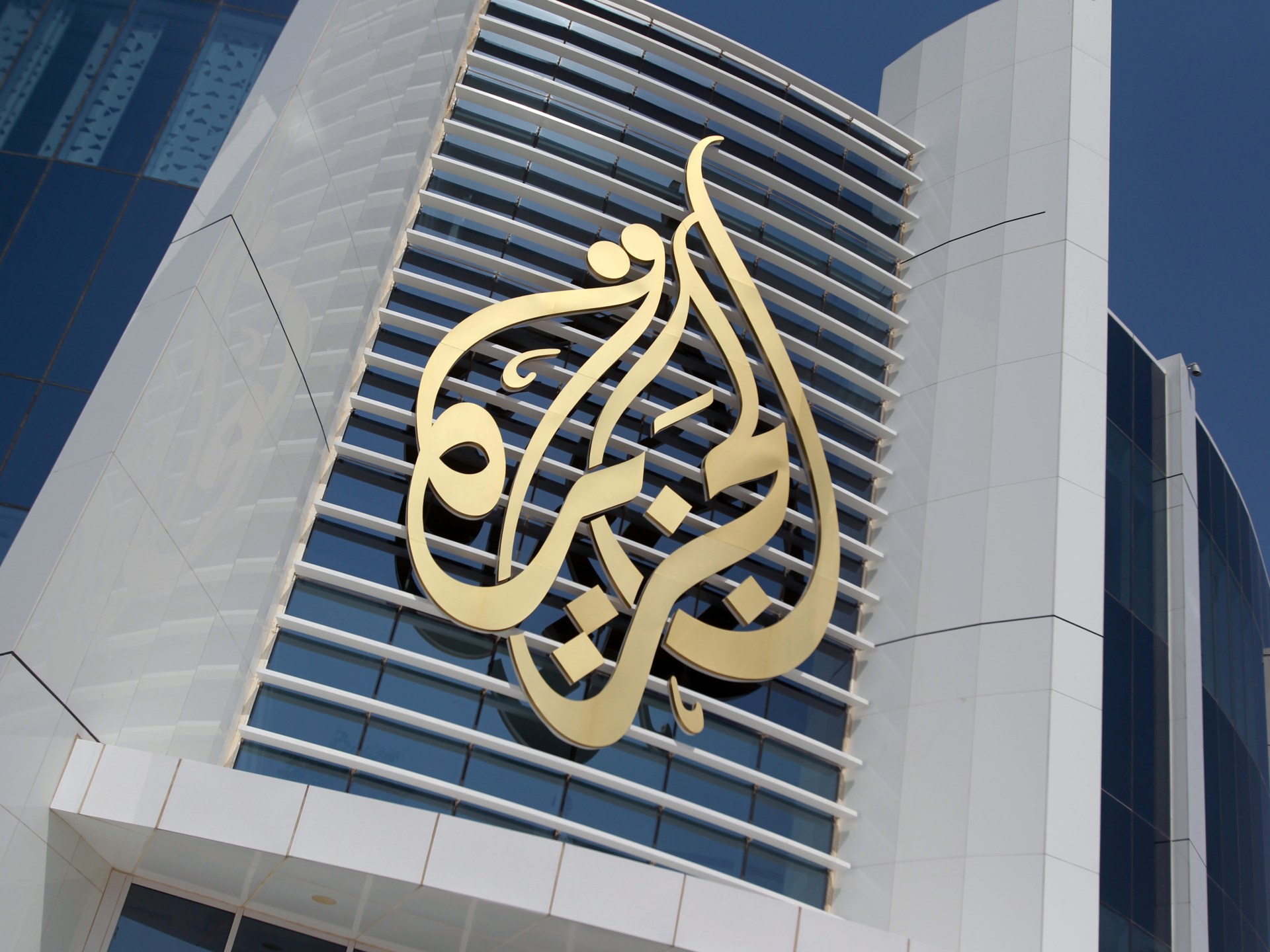
Fault Lines wins in News & Documentary category while Close Up wins in Interactive & Immersive category.
Al Jazeera Media Network has been honoured with two prestigious Peabody Awards, one of the most esteemed accolades in broadcast storytelling.
The awards recognise the Al Jazeera English Fault Lines documentary The Night Won’t End in the News & Documentary category, and the Al Jazeera English Digital film One Day in Gaza from the series Close Up, in the Interactive & Immersive category.
The 85th annual Peabody award winners were announced on May 1, 2025, in advance of its annual ceremony in Los Angeles on June 1, 2025.
The awards honour intelligent, powerful and moving stories told in broadcast and digital media.
Al Jazeera English’s Fault Lines documentary The Night Won’t End uncovers the tragic human cost of war. It depicts the realities of the unrelenting Israeli bombing campaign on Gaza, the unsafe “safe zones,” and arbitrary executions through the eyes of three families during the initial 15 months of the war.
The film investigates the death of five-year-old Hind Rajab, who was waiting to be rescued from a car where her family members had already been shot dead. Two medics dispatched to rescue her were also killed, as verified by a forensic watchdog agency.
Laila Al-Arian, executive producer of Fault Lines, stated, “No single piece can fully capture the scale of the atrocities in Gaza, but we aimed through investigative journalism and on-the-ground storytelling to offer a glimpse of what life has been like. We are honoured by this recognition because it helps bring more attention to a continuing story the world needs to see. Though we filmed this over a year ago, the horrors we documented remain a daily reality for more than 2 million Palestinians in Gaza.”
To date, The Night Won’t End has garnered multiple awards, including in the coveted International Current Affairs category at the Royal Television Society Awards in the United Kingdom, the Overseas Press Club prize for best TV, video or documentary about international affairs, and the long-form award from the Centre for Information Resilience Open-Source Film Awards.
The One Day in Gaza film from the series Close Up is a compilation of videos recorded by 10 individuals in Gaza, who were asked to document moments throughout their day, thereby helping viewers understand the immense hardships and constant dangers faced by Palestinians living under the constant bombardment in Gaza.
Juan Carlos Van Meek, director of digital innovation and programming, expressed his gratitude for awarding the team the Peabody Award, stating, “I am immensely proud of our team’s relentless efforts in amplifying the humanity of Palestinians living in Gaza under constant bombardment. Through the brave voices of people on the ground, we have captivated millions of viewers and helped sustain global attention on the ongoing genocide, ensuring their stories are not forgotten.”
The recognition of these documentaries underscores Al Jazeera’s commitment to highlighting the profound human experiences amid conflict.
As the situation in Gaza continues to unfold, The Network remains dedicated to shedding light on the stories that matter, ensuring that the voices of those affected are heard on a global platform.
Middle East
Fourth round of US-Iran nuclear talks postponed amid continued tensions | Nuclear Energy News
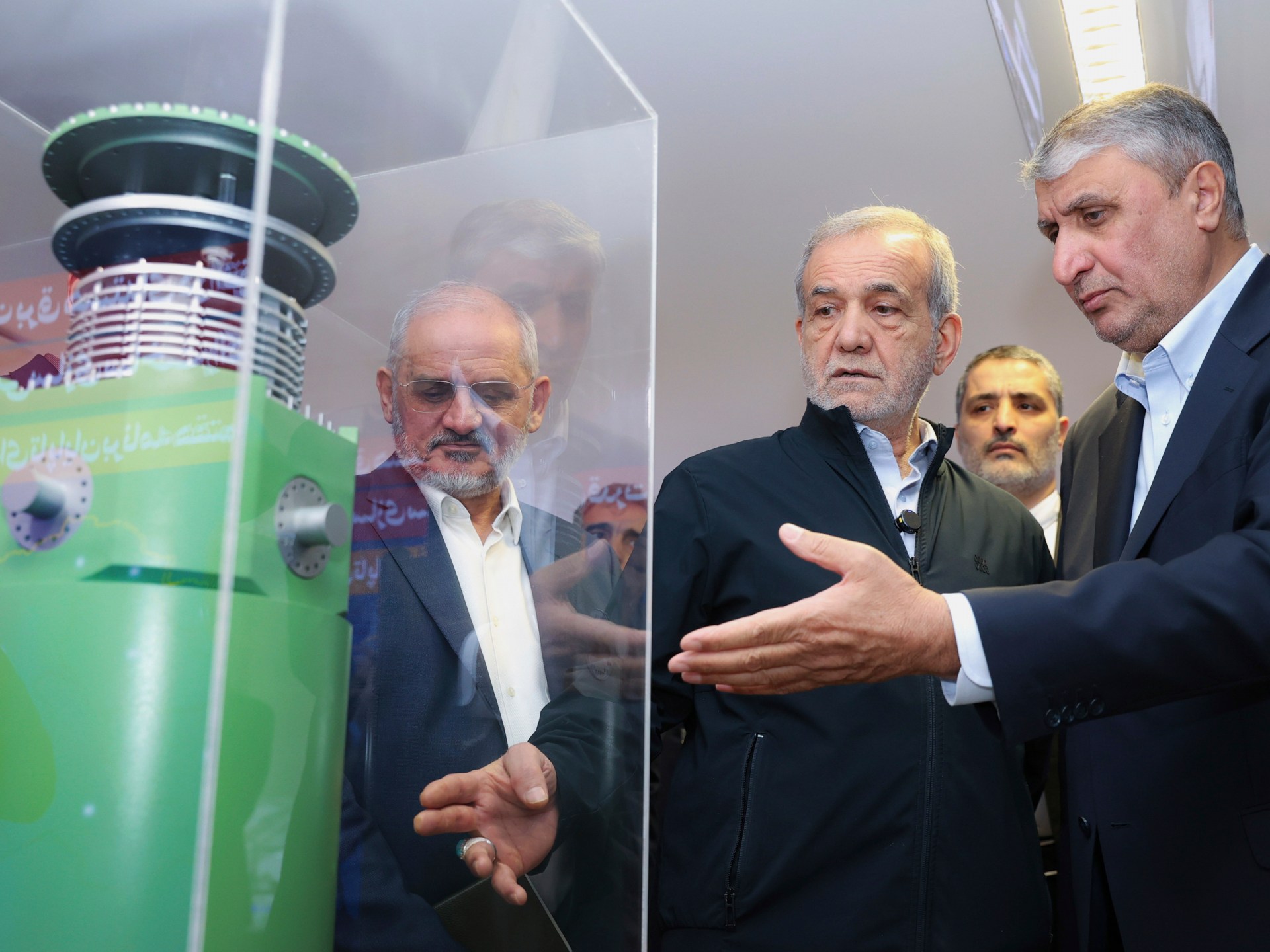
The foreign minister of Oman has announced that a fourth round of talks with the United States about Iran’s nuclear programme had been postponed.
Minister Badr bin Hamad al-Busaidi made the announcement on the social media platform X on Thursday, just days before the talks were expected to begin in Rome.
“For logistical reasons we are rescheduling the US Iran meeting provisionally planned for Saturday May 3rd,” he wrote. “New dates will be announced when mutually agreed.”
Al-Busaidi had previously mediated three rounds of talks between Iran and the US. The first took place in Oman’s capital of Moscat on April 12, with a follow-up in Rome the following weekend. A third round of negotations returned to Moscat on April 26, with the US touting “progress” towards a nuclear deal.
But tensions between the Iranian and US governments have been simmering beneath the near-weekly meetings.
The administration of President Donald Trump has said its aim is to prevent Iran from developing a nuclear weapon, though Tehran has long denied armament as a goal. It frames its nuclear programme as a civilian energy project.
The Trump White House has hinted its goals may extend further, though, to the total dismantlement of Iran’s nuclear enrichment programme. In mid-April, US special envoy Steve Witkoff released a statement saying that “Iran must stop and eliminate its nuclear enrichment and weaponization program” as part of a final deal.
Earlier on Thursday, before the postponement was announced, Iran accused the US of issuing “contradictory behaviour and provocative statements” about the nuclear negotiations.
And on Wednesday, the US made a series of aggressive moves as part of its “maximum pressure” campaign against Iran, heightening the already uneasy relations.
First, the US Department of State sanctioned seven entities involved in the trade of Iranian oil products, on the basis that the proceeds “support its terrorist activities and proxies”. Then, Defense Secretary Pete Hegseth offered his own remarks, warning that Iranian support of the Houthis, a Yemen-based armed group, could result in US retaliation.
“Message to IRAN: We see your LETHAL support to The Houthis. We know exactly what you are doing,” Hegseth wrote on social media on Wednesday.
“You know very well what the U.S. Military is capable of — and you were warned. You will pay the CONSEQUENCE at the time and place of our choosing.”
Despite the heated rhetoric, Iran’s Ministry of Foreign Affairs said that Thursday’s postponement came “at the request of Oman’s foreign minister”. Iranian spokesperson Esmail Baghaei also emphasised that his country was committed to achieving “a fair and lasting agreement” with the US.
Still, a senior official with the Iranian government told the Reuters news agency on condition of anonymity that the recent US actions were tied to the delay.
“US sanctions on Iran during the nuclear talks are not helping the sides to resolve the nuclear dispute through diplomacy,” the official told Reuters. “Depending on the US approach, the date of the next round of talks will be announced.”
Other media reports, meanwhile, indicate that the US was not completely on board with the prospects of renewed talks in Rome this weekend.
An anonymous source told The Associated Press that the US “had never confirmed its participation” in this weekend’s anticipated talks, but that further negotiations were expected “in the near future”.
Successive US administrations have sought to prevent Iran from acquiring a nuclear weapon. One recent effort culminated with a 2015 agreement called the Joint Comprehensive Plan of Action (JCPOA).
The multilateral agreement, forged during the administration of US President Barack Obama, created a framework for Iran to receive relief from international sanctions, in exchange for reducing its uranium enrichment and submitting to inspections of its nuclear facilities.
But when Trump succeeded Obama as US president, he set into motion plans to withdraw the US from the JCPOA in 2018, causing the deal to crumble.
Instead, during his first term as president from 2017 to 2021, Trump pursued a campaign of “maximum pressure” against Iran, a strategy he has returned to since taking office a second time in January.
When Trump launched a new round of US attacks against the Houthis in March, he warned he held Iran responsible for Houthi strikes against ships in the Red Sea — and he hinted he would consider using force against that country as a result.
“Every shot fired by the Houthis will be looked upon, from this point forward, as being a shot fired from the weapons and leadership of IRAN, and IRAN will be held responsible, and suffer the consequences, and those consequences will be dire!” Trump wrote on March 17.
More recently, the US president threatened military action could also be an outcome if a nuclear deal were not reached.
In an interview with Time Magazine, published on April 25, Trump addressed the pressure from the US’s ally Israel to confront Iran militarily, saying he had not ruled it out.
“It’s possible we’ll have to attack because Iran will not have a nuclear weapon,” Trump said at one point. “Ultimately, I was going to leave that choice to them, but I said I would much prefer a deal than bombs being dropped.”
He later added, “If we don’t make a deal, I’ll be leading the pack,” seemingly referring to military intervention.
But the US president emphasised he was optimistic that the talks with Iran would pan out. He even expressed willingness to meet with Iran’s leadership personally.
“I think that we’re going to make a deal with Iran. I think we’re going to make a deal with Iran,” he said. “Nobody else could do that.”
Middle East
Pro-Palestine activist arrested in Belgium after attending protest | Israel-Palestine conflict News
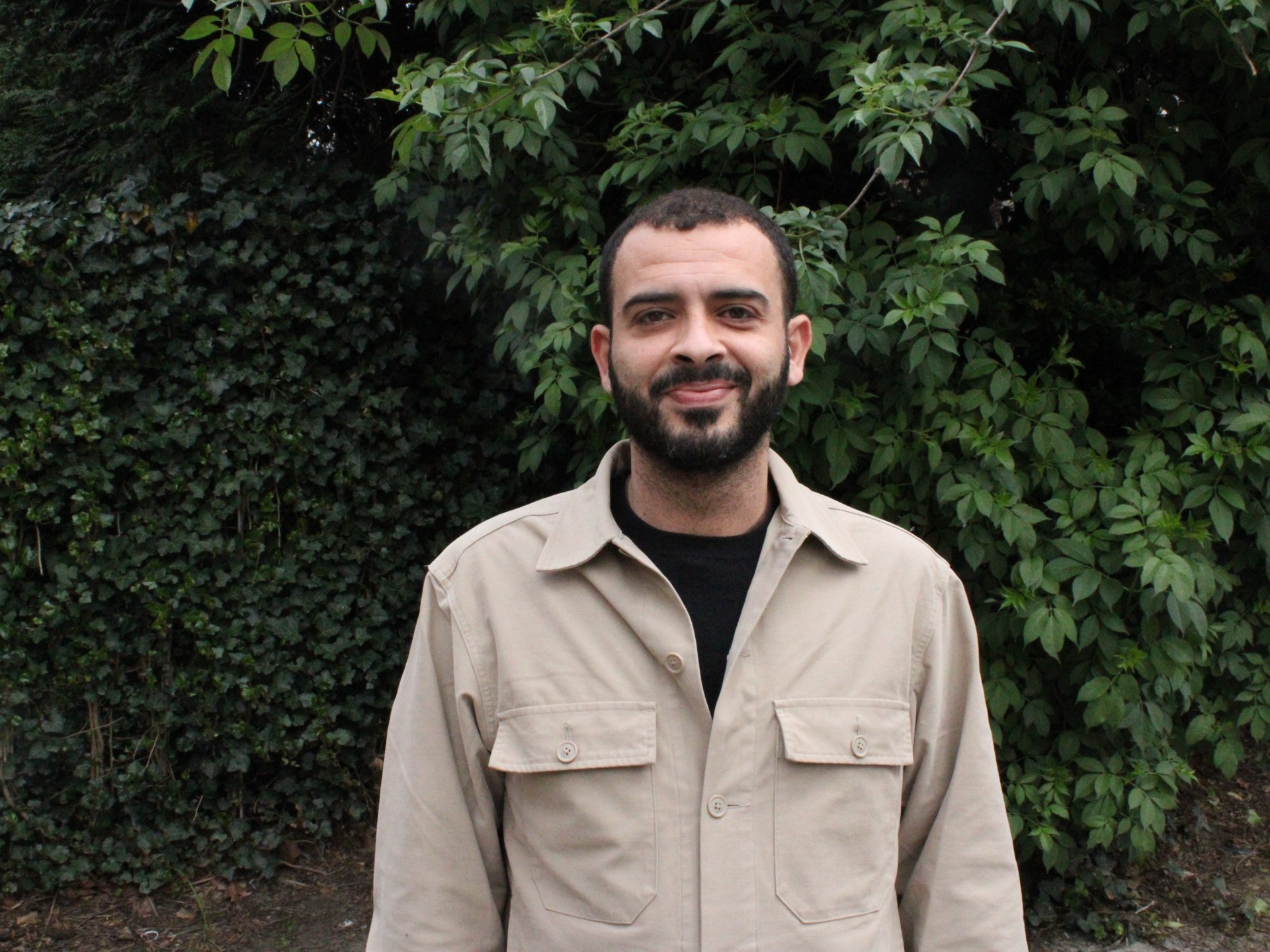
Brussels, Belgium – The recent arrest of a Palestinian activist in Belgium has raised alarm as the organisation he works for describes the incident as “a form of state harassment”.
Mohammed Khatib, the 35-year-old European coordinator for Samidoun, a global Palestinian prisoner solidarity network, was arrested on April 21 after attending a daily protest demanding an end to Israel’s genocide against Palestinians in Gaza.
Every evening, dozens of people, some sporting keffiyehs, gather on the steps of the former stock exchange in Brussels to drape a Palestine flag down the steps and chant slogans of solidarity in English, Arabic and French.
A police presence is usual, but Khatib felt uneasy when he noticed an officer photographing him
He left about 7:30pm (17:30 GMT) and was stopped nearby for what he called a “spontaneous” ID check by local police.
He was arrested and taken in a police van to a central station. About 30 supporters gathered outside, chanting, “Free our comrade!” before being dispersed by riot police about 10pm (20:00 GMT).
Khatib was then transferred to a nearby station. He was questioned without a lawyer and released about 5am (03:00 GMT).
Khatib said he spent hours waiting in a cell before being asked for a few minutes about an incident in April 2024 during which he was attacked with a knife. There was also a brief trip to the hospital for nonurgent medication.
“They were doing anything they could to keep me,” Khatib told Al Jazeera.
The Brussels Public Prosecutor’s Office told Al Jazeera: “Mohammed Khatib was arrested as part of an investigation into events that took place in April 2024. He was released after questioning.”
Belgium’s tensions with pro-Palestine movement
A Palestinian refugee born in the Ein El Hilweh camp in Lebanon in 1990, Khatib fled to Belgium alone at age 19, claimed asylum and co-founded Samidoun one year later in 2011. Campaigning for the rights of Palestinians incarcerated in Israel is his sole occupation.
Samidoun’s stance on Israel-Palestine has led to Khatib being designated as a “serious” security threat by the Coordination Unit for Threat Analysis (CUTA), an independent body that reports to Belgium’s justice and interior ministries.
Khatib said officers on April 21 justified the arrest initially with the CUTA designation.
It marked the second time he has been arrested. In October 2023, he was arrested at a demonstration after refusing to stop waving a Palestine flag.
The latest detention was “nothing in terms of what we are facing”, he said, referring to efforts in some Western nations to curtail the pro-Palestine movement.
Samidoun called the arrest “a form of state harassment targeting a prominent leader, not only of Samidoun, but of the growing movement against the ongoing genocide in occupied Palestine”.
“It’s hard not to see it in that light,” refugee and immigration lawyer Benoit Dhondt told Al Jazeera. “A lot of people are living in a state of schizophrenia because of how invisible the genocide in Gaza is being made in Europe.”
Meanwhile, “disproportionate policing of the pro-Palestine movement makes it very difficult to understand what is actually happening,” he said.
The author and journalist David Cronin wrote in The Electronic Intifada: “If the Belgian authorities enjoy any success in muzzling Mohammed Khatib and Samidoun, then we have to ask: Who is next? All Palestine solidarity campaigners are at risk.”
In May last year, police used water cannon and tear gas to disperse a peaceful protest outside the Israeli embassy in Brussels under instructions from Mayor Boris Dillies, who said the demonstration was unauthorised. An open letter signed by Amnesty International described the measure as “contrary to international law”.
Earlier that month, police had arrested about 40 protesters when a demonstration at the US embassy went overtime.
In a report on the state of the right to protest published in July, Amnesty noted that administrative arrest “is increasingly used to prevent people from participating in protests” in Belgium.
Human rights and immigration lawyer Helene Crokart told Al Jazeera that arrests “are not isolated incidents” and “sometimes amount to outright intimidation”.
Samidoun, Khatib in the crosshairs
On October 15, then-State Secretary for Migration and Asylum Nicole De Moor, a Christian Democrat, announced a procedure to strip Khatib, who she called a “hate preacher”, of asylum.
“Even if someone has already been recognised as a refugee but that person turns out to be an extremist, recognition can be withdrawn,” she stated.
On the same day, the United States and Canada blacklisted Samidoun, deeming it a “sham charity” and accusing it of raising funds for the Popular Front for the Liberation of Palestine, a designated “terrorist” organisation.
Samidoun denied the allegation.
Germany banned Samidoun in 2023, alleging it celebrated the October 7, 2023, Hamas-led attacks in southern Israel. Khatib said, “Some Palestinians were distributing baklava in the street. And we were there with the Samidoun flag.”
Khatib has also been banned from entering Switzerland for 10 years, which occurs only when an individual poses what is considered a “concrete” threat to national security, according to a Swiss government spokesperson. He was not permitted to enter the Netherlands for a university talk in October.
During the October 2023 attacks, 1,139 people were killed and more than 200 were taken captive into Gaza. Since then, Israel’s latest war on Gaza has killed more than 52,000 people, including more than 17,000 children, in the besieged enclave. Israel has justified the onslaught as an attempt to crush Hamas.
According to a CUTA spokesperson, Samidoun is classified as an “extremist” organisation, which “is not a criminal offence”.
“We are more interested in keeping an eye on the leadership, the members, what they do and say, how they disrupt public order and what group they are potentially targeting,” the spokesperson said.
Belgium’s right-wing government, appointed in February, is markedly more sympathetic to Israel than its predecessor.
Prime Minister Bart De Wever of the New Flemish Alliance party said Belgium would not arrest Israeli Prime Minister Benjamin Netanyahu despite an International Criminal Court (ICC) warrant for his arrest on charges of crimes against humanity. Four months earlier, then-Liberal Premier Alexander De Croo stated the opposite.
The coalition headed by De Wever intends to “ban dangerous radical organisations such as Samidoun due to their ties to terrorism or for spreading antisemitism”, according to official documents.
But a ban would likely take a long time to implement because Belgian positions depend on European Union and United Nations Security Council decisions.
De Moor’s successor, Anneleen Van Bossuyt, supports the initiative to revoke Khatib’s refugee status. Such a decision is made independently by the commissioner general for refugees and stateless persons and must rely on proof of a serious crime.
A decision to strip someone’s status may be appealed, but once finalised, the immigration office could issue an order for a person to leave the country.
The case depends on material that authorities said they are not sharing, even with Khatib.
Dhondt warned of a “chilling effect” on freedom of expression.
The government is using Khatib’s case as a “propaganda tool” to demonstrate strong policies on “extremism”, he said, even though it “can’t really say why [Khatib poses any threat]”.
Khatib denies all allegations of hate speech.
“If they had something they could use against me, I would not be sitting here. I would be in prison.
“The goal of this intimidation is to silence the movement, to make an example of us and say, ‘If you do the same, this is your future’. We will fight this.”
‘Smear campaign’
Khatib has previously called for Israel to be “dismantled” and said, “We do not call Hamas’s attack in Israel a terror attack. We call it justified resistance.”
Seen as hardline positions by some, mainstream activists have distanced themselves from Samidoun but urged Brussels to uphold freedom of expression.
The Human Rights League, a nonprofit organisation that has criticised Belgian authorities for allowing the transit of arms to Israel, does not wholly endorse Khatib’s views but “reiterates the need to protect freedom of expression, including for statements that ‘offend, shock or disturb’, according to the European Court of Human Rights”.
“While the positions defended by Mohammed Khatib and Samidoun can undeniably be described as radical, … to our knowledge they have never been prosecuted for any criminal offence (including for anti-Semitic statements) nor have they caused any public disorder,” the rights group said in a 2024 report.
The group linked Khatib’s case to other measures, such as local bans on keffiyehs and other pro-Palestine symbols and the temporary suspension of decisions on Palestinian asylum applications. The report concluded that the lack of a decision on revoking Khatib’s refugee status suggests insufficient evidence against him.
The Union of Progressive Jews in Belgium last year denounced a “smear campaign” against Khatib.
“Whatever political differences we may have, this threat is intolerable and shakes the very foundations of our democracy.”
-

 Lifestyle2 days ago
Lifestyle2 days agoAfter a year of turmoil, The Washington Post is taking note of its journalism again
-

 Asia2 days ago
Asia2 days agoFall of Saigon: US officers who broke rank to save lives recall final days of Vietnam War 50 years on
-
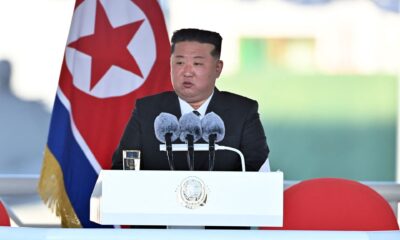
 Conflict Zones2 days ago
Conflict Zones2 days agoAbout 600 North Korean soldiers killed in war in Ukraine, lawmakers say | Russia-Ukraine war News
-
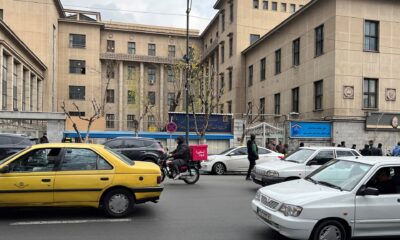
 Middle East1 day ago
Middle East1 day agoIran hangs man convicted of spying for Israel’s Mossad | Espionage News
-
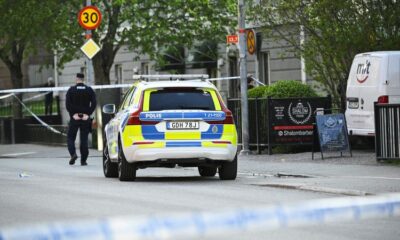
 Europe2 days ago
Europe2 days ago16-year-old suspect detained after 3 killed in shooting in Sweden
-

 Europe2 days ago
Europe2 days agoSanaa, Yemen: UK launches strikes against Houthis, in first joint US operation under Trump
-

 Sports2 days ago
Sports2 days agoMaya Merhige: American teenager withstood thousands of jellyfish stings during a 14-hour swim across the Cook Strait
-

 Africa1 day ago
Africa1 day agoAlgeria to unveil military mobilisation bill amid regional tensions




